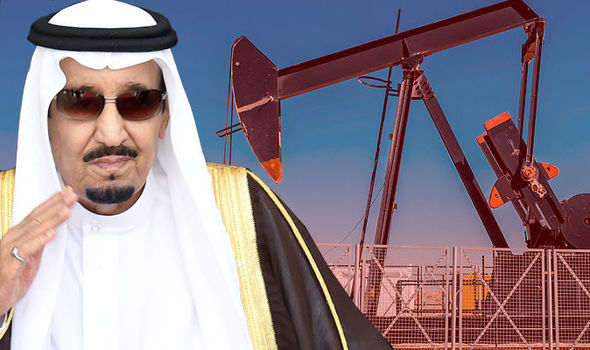Saudi Arabia Projects USD87 Billion Deficit, Hit By Oil Price
Saudi Arabia announced its plan to reduce its record-high $98 billion deficit in the form of spending cuts, increased taxes and privatization, and energy subsidy reforms.
Oil prices struggled in subdued Asian trade Tuesday on tepid economic data from Japan and indications that major crude exporter Saudi Arabia’s 2016 budget is based on prices staying low.
The government forecasts the deficit will narrow to 326.2 billion riyals (US$87 billion) in 2016, from 367 billion riyals this year.
Saudi Arabia’s budget moves this week signaled the kingdom’s willingness to allow low oil prices to remain in place into 2016.
The situation is so bad that the Saudi government said petrol prices, which are usually very cheap in Saudi Arabia because of the glut of oil the country produces, may increase by 50%; and diesel, electricity, and water prices will also increase to help offset the drop in foreign revenues.
The finance ministry said it was planning a series of measures to contain spending, including a five-year programme to cut subsidies on electricity and fuel.
This is the first budget announcement since King Salman’s ascension to the throne and is expected to reflect reforms he announced last week.
“We don’t see any changes to Saudi Arabia’s oil policy in the context of oil production”, said Energy Aspects analyst Amrita Sen.
Bloomberg News said Saudi’s 2016 budget is probably based on crude prices of about $29 a barrel, suggesting the oil powerhouse intends to stick to its policy of maintaining high output despite low prices.
Income from crude exports was 444.5 billion riyals, making up 73 per cent of total revenue.
In late October, the Standard & Poor’s credit rating agency downgraded the country’s sovereign debt rating to A+ from AA-, prompting a fierce response from the country’s finance ministry.
It unveiled economic and fiscal reforms to make the budget more sustainable, including a programme to contain spending growth, especially for wages and benefits which accounted for half of the 2015 budget. A quarter of that will be allocated to military and security purposes. With a proxy war against Iran playing out in neighbouring Yemen, and the ISIS insurgency on its doorstep, you might have thought that Saudi remits for the global defence industry were secure – but you need deep pockets to throw your weight around.
The government said expenditure reached 975 billion riyals (US$260 billion) in 2015, 13 per cent above its target.
The kingdom withdrew more than $80bn this year from its reserves, which stood at $732bn at the end of 2014, and issued bonds worth about $20bn.








